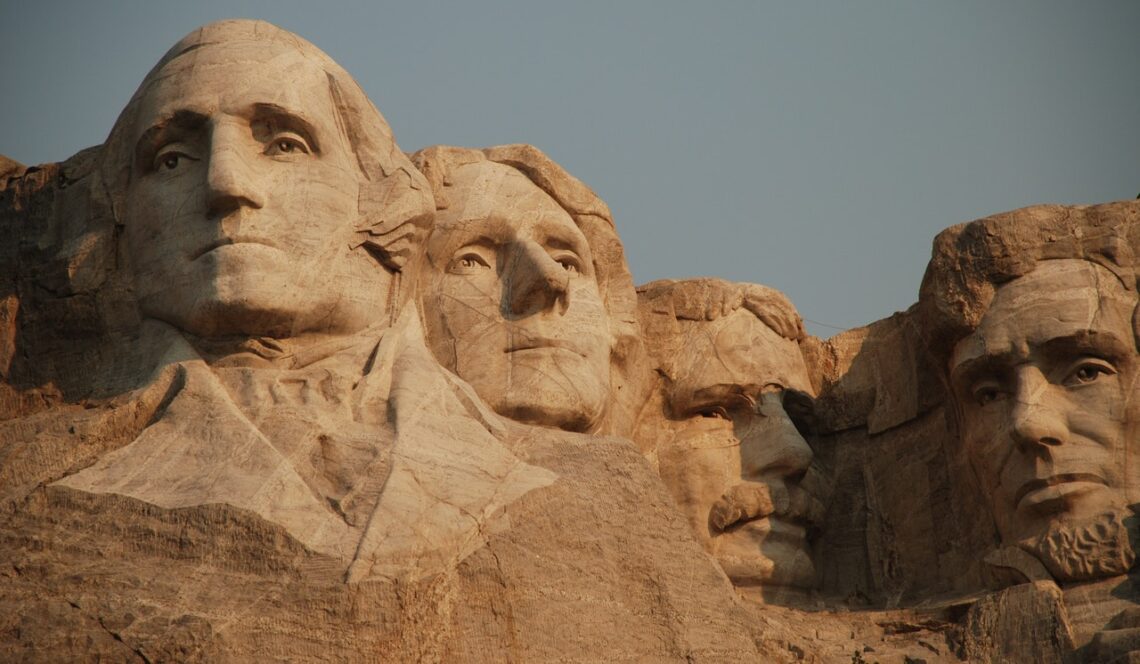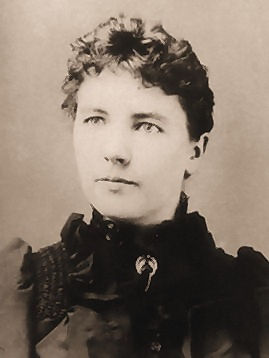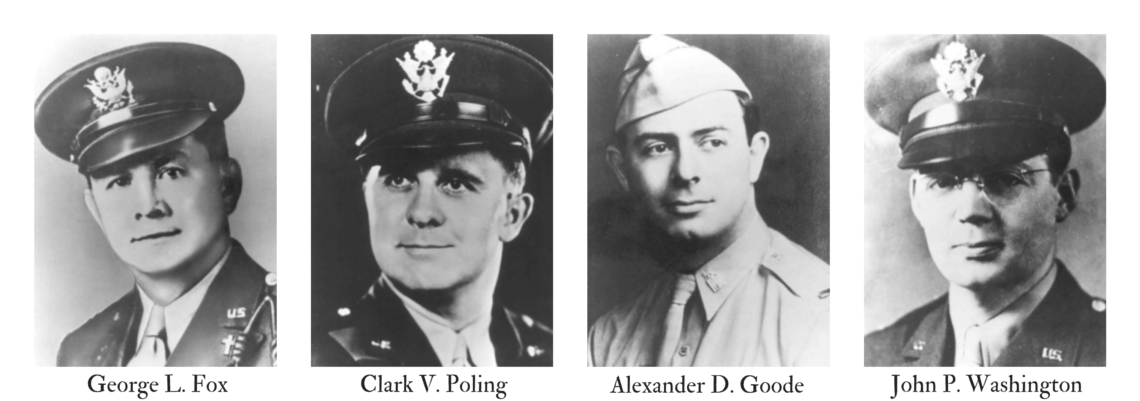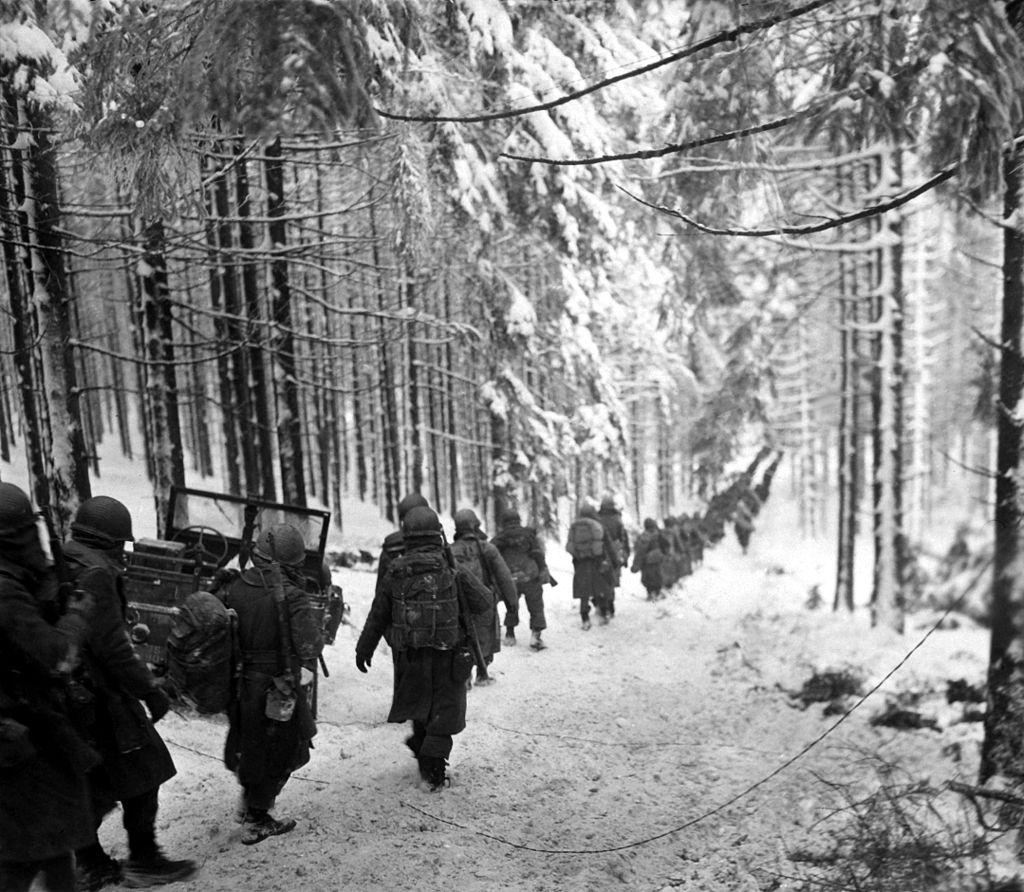-
Saturday Civilities: Part 8
71. Gaze not on the marks or blemishes of Others and ask not how they came. What you may Speak in Secret to your Friend deliver not before others.
72. Speak not in an unknown Tongue in Company but in your own Language and that as those of Quality do and not as the Vulgar; Sublime matters treat Seriously.
73. Think before you Speak pronounce not imperfectly nor bring out your Words too hastily but orderly & distinctly.
74. When Another Speaks be attentive your Self and disturb not the Audience if any hesitate in his Words help him not nor Prompt him without desired, Interrupt him not, nor Answer him till his Speech be ended.
75. In the midst of Discourse ask not of what one treateth but if you Perceive any Stop because of your coming you may well intreat him gently to Proceed: If a Person of Quality comes in while your Conversing it’s handsome to Repeat what was said before.
76. While you are talking, Point not with your Finger at him of Whom you Discourse nor Approach too near him to whom you talk especially to his face.
77. Treat with men at fit Times about Business & Whisper not in the Company of Others.
78. Make no Comparisons and if any of the Company be Commended for any brave act of Virtue, commend not another for the Same.
79. Be not apt to relate News if you know not the truth thereof. In Discoursing of things you Have heard Name not your Author always A Secret Discover not.
80. Be not Tedious in Discourse or in reading unless you find the Company pleased therewith.
(Rules 61-70 can be found here; for an introduction to Washington’s Rules see here)
*All spelling is original
-
Human Law
“Human law must rest its authority ultimately upon the authority of that law which is divine. . . Far from being rivals or enemies, religion and law are twin sisters, friends, and mutual assistants. Indeed, these two sciences run into each other.”
– James Wilson
(signer of the Constitution, U.S. Supreme Court Justice) -
Saturday Civilities: Part 7
61. Utter not base and frivolous things amongst grave and Learned Men nor very Difficult Questions or Subjects, among the Ignorant or things hard to be believed, Stuff not your Discourse with Sentences amongst your Betters nor Equals.
62. Speak not of doleful Things in a Time of Mirth or at the Table; Speak not of Melancholy Things as Death and Wounds, and if others Mention them Change if you can the Discourse tell not your Dreams, but to your intimate Friend.
63. A Man ought not to value himself of his Achievements, or rare Qualities of wit; much less of his riches Virtue or Kindred.
64. Break not a Jest where none take pleasure in mirth Laugh not aloud, nor at all without Occasion, deride no mans Misfortune, though there Seem to be Some cause.
65. Speak not injurious Words neither in Jest nor Earnest Scoff at none although they give Occasion.
66. Be not froward but friendly and Courteous; the first to Salute hear and answer & be not Pensive when it’s a time to Converse.
67. Detract not from others neither be excessive in Commanding.
68. Go not thither, where you know not, whether you Shall be Welcome or not. Give not Advice without being Asked & when desired do it briefly.
69. If two contend together take not the part of either unconstrained; and be not obstinate in your own Opinion, in Things indifferent be of the Major Side.
70. Reprehend not the imperfections of others for that belongs to Parents Masters and Superiors.
(See here if you missed Part 6; for an introduction to Washington’s Rules see here)
*All spelling is original
-
Presidents’ Day 2021
“Yet, after all, though the problems are new, though the tasks set before us differ from the tasks set before our fathers who founded and preserved this Republic, the spirit in which these tasks must be undertaken and these problems faced, if our duty is to be well done, remains essentially unchanged. We know that self-government is difficult. We know that no people needs such high traits of character as that people which seeks to govern its affairs aright through the freely expressed will of the freemen who compose it. But we have faith that we shall not prove false to the memories of the men of the mighty past. They did their work, they left us the splendid heritage we now enjoy. We in our turn have an assured confidence that we shall be able to leave this heritage unwasted and enlarged to our children and our children’s children. To do so we must show, not merely in great crises, but in the everyday affairs of life, the qualities of practical intelligence, of courage, of hardihood, and endurance, and above all the power of devotion to a lofty ideal, which made great the men who founded this Republic in the days of Washington, which made great the men who preserved this Republic in the days of Abraham Lincoln.”
– Theodore Roosevelt,
excerpt from his Inaugural Address, March 4th, 1905 -
Saturday Civilities: Part 6
51. Wear not your Cloths, foul, ripped or Dusty but See they be Brushed once every day at least and take heed that you approach not to any Uncleaness.
52. In your Apparel be Modest and endeavor to accommodate Nature, rather than to procure Admiration keep to the Fashion of your equals Such as are Civil and orderly with respect to Times and Places.
53. Run not in the Streets, neither go too slowly nor with Mouth open go not Shaking your Arms kick not the earth with R feet, go not upon the Toes, nor in a Dancing fashion.
54. Play not the Peacock, looking every where about you, to See if you be well Decked, if your Shoes fit well if your Stockings sit neatly, and Cloths handsomely.
55. Eat not in the Streets, nor in the House, out of Season.
56. Associate yourself with Men of good Quality if you Esteem your own Reputation; for ’tis better to be alone than in bad Company.
57. In walking up and Down in a House, only with One in Company if he be Greater than yourself, at the first give him the Right hand and Stop not till he does and be not the first that turns, and when you do turn let it be with your face towards him, if he be a Man of Great Quality, walk not with him Cheek by Joul but Somewhat behind him; but yet in Such a Manner that he may easily Speak to you.
58. Let your Conversation be without Malice or Envy, for ’tis a Sign of a Tractable and Commendable Nature: And in all Causes of Passion admit Reason to Govern.
59. Never express anything unbecoming, nor Act against the Rules Moral before your inferiors.
60. Be not immodest in urging your Friends to Discover a Secret.
(You can read Rules 41-50 here; for an introduction to Washington’s Rules see here)
*All spelling is original
-
Death of Laura Ingalls Wilder
Laura Ingalls Wilder
February 7th, 1867 – February 10th, 1957“The ‘Little House’ books are stories of long ago. Today our way of living and our schools are much different; so many things have made living and learning easier. But the real things haven’t changed. It is still best to be honest and truthful; to make the most of what we have; to be happy with the simple pleasures and to be cheerful and have courage when things go wrong. Great improvements in living have been made because every American has always been free to pursue his happiness, and so long as Americans are free they will continue to make our country ever more wonderful.”
– Excerpt from Laura’s “Letter to Children”, 1950s
*Photograph of Laura Ingalls Wilder, circa 1885 (source);
letter available here -
Saturday Civilities: Part 5
41. Undertake not to Teach your equal in the art himself Professes; it Savours of arrogance.
42. Let thy ceremonies in Courtesy be proper to the Dignity of his place with whom thou converses for it is absurd to act the same with a Clown and a Prince.
43. Do not express Joy before one sick or in pain for that contrary Passion will aggravate his Misery.
44. When a man does all he can though it Succeeds not well blame not him that did it.
45. Being to advise or reprehend any one, consider whether it ought to be in public or in Private; presently, or at Some other time in what terms to do it & in reproving Show no Sign of Cholar but do it with all Sweetness and Mildness.
46. Take all Admonitions thankfully in what Time or Place Soever given but afterwards not being culpable take a Time & Place convenient to let him him know it that gave them.
47. Mock not nor Jest at any thing of Importance break [n]o Jest that are Sharp Biting and if you Deliver any thing witty and Pleasant abstain from Laughing thereat yourself.
48. Wherein you reprove Another be unblameable yourself; for example is more prevalent than Precepts.
49. Use no Reproachful Language against any one neither Curse nor Revile.
50. Be not hasty to believe flying Reports to the Disparagement of any.
(See here for previous ten rules; for an introduction to Washington’s Rules see here)
*All spelling is original
-
The Four Chaplains
In early 1943, during World War II, the US troopship SS Dorchester was underway to Greenland. On board were four United States Army Chaplains, each holding to a separate creed: George L. Fox had been ordained in the Methodist church, Clark V. Poling in the Reformed Church in America; Alexander D. Goode was a Jewish rabbi, John P. Washington a Catholic priest. They put their differences aside, however, on the fateful morning of February 3rd, when the Dorchester was torpedoed by a German U-boat. Amidst chaos and confusion, the chaplains calmed and encouraged the other men on board, assisted the injured, and helped whom they could into life boats. In time it became apparent that there were not enough life vests for all 902 men on board, so the four chaplains selflessly offered up their own. The fact that they were willing to do so for any man, regardless of his religious profession, greatly impacted survivor John Ladd, who said afterwards, “It was the finest thing I have seen or hope to see this side of heaven.” When there was no more the chaplains could do to help, they linked arms; singing and praying, Fox, Goode, Poling, and Washington met their death with 668 other men in the frigid waters of the North Atlantic.
Other survivors later recalled:
“I could hear men crying, pleading, praying. I could also hear the chaplains preaching courage. Their voices were the only thing that kept me going.” – William B. Bednar
“As I swam away from the ship, I looked back. The flares had lighted everything. The bow came up high and she slid under. The last thing I saw, the Four Chaplains were up there praying for the safety of the men. They had done everything they could. I did not see them again. They themselves did not have a chance without their life jackets.” – Grady Clark
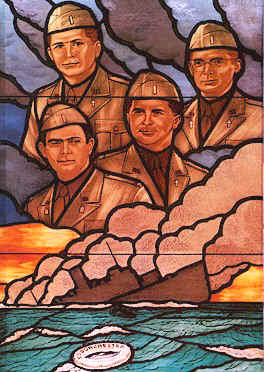
*Sources for photographs of the Chaplains: Fox, Poling, Goode, Washington;
survivor accounts taken from Wikipedia and the Four Chaplains Memorial Foundation;
stained glass window at the U.S. Pentagon (source) -
Saturday Civilities: Part 4
It’s time for this week’s post of George Washington’s “Rules of Civility” (see here for Part 3). Enjoy reading through Rules 31-40!
31. If any one far Surpasses others, either in age, Estate, or Merit yet would give Place to a meaner than himself in his own lodging or elsewhere the one ought not to except it, So he on the other part should not use much earnestness nor offer it above once or twice.
32. To one that is your equal, or not much inferior you are to give the chief Place in your Lodging and he to who ’tis offered ought at the first to refuse it but at the Second to accept though not without acknowledging his own unworthiness.
33. They that are in Dignity or in office have in all places Precedency but whilst they are Young they ought to respect those that are their equals in Birth or other Qualities, though they have no Public charge.
34. It is good Manners to prefer them to whom we Speak before ourselves especially if they be above us with whom in no Sort we ought to begin.
35. Let your Discourse with Men of Business be Short and Comprehensive.
36. Artificers & Persons of low Degree ought not to use many ceremonies to Lords, or Others of high Degree but Respect and highly Honor them, and those of high Degree ought to treat them with affability & Courtesy, without Arrogance.
37. In speaking to men of Quality do not lean nor Look them full in the Face, nor approach too near them at lest Keep a full Pace from them.
38. In visiting the Sick, do not Presently play the Physician if you be not Knowing therein.
39. In writing or Speaking, give to every Person his due Title According to his Degree & the Custom of the Place.
40. Strive not with your Superiors in argument, but always Submit your Judgment to others with Modesty.
*All spelling is original
-
Adversity Toughens Manhood
“Adversity toughens manhood, and the characteristic of the good or the great man is not that he has been exempt from the evils of life, but that he has surmounted them.”
– Patrick Henry
*American soldiers during World War II march on a snow-covered road in Belgium, January 1945 (source)



